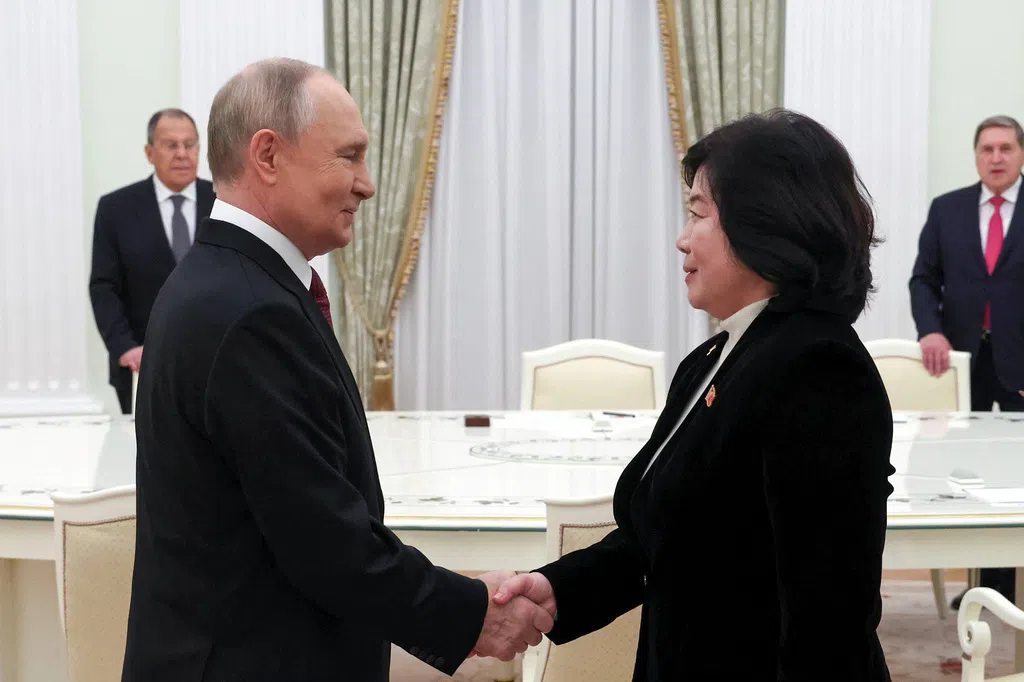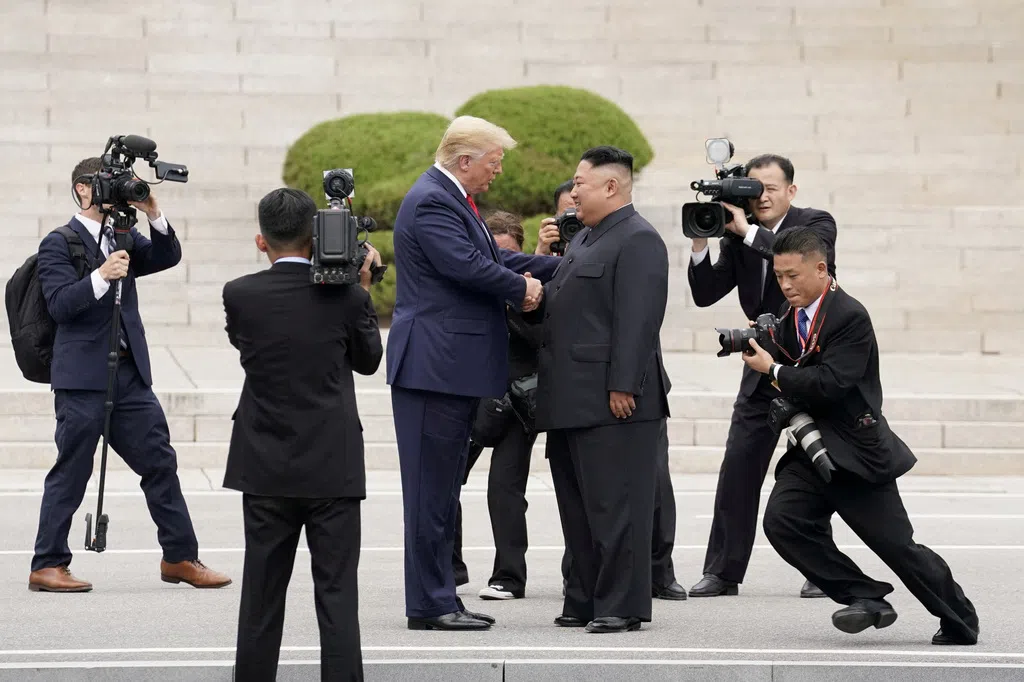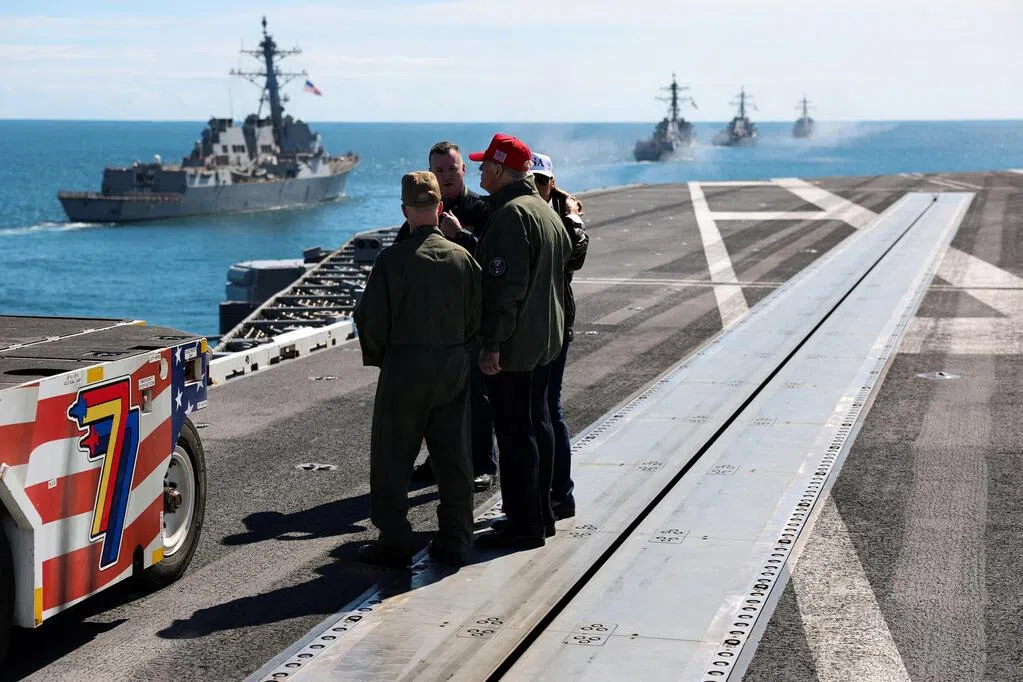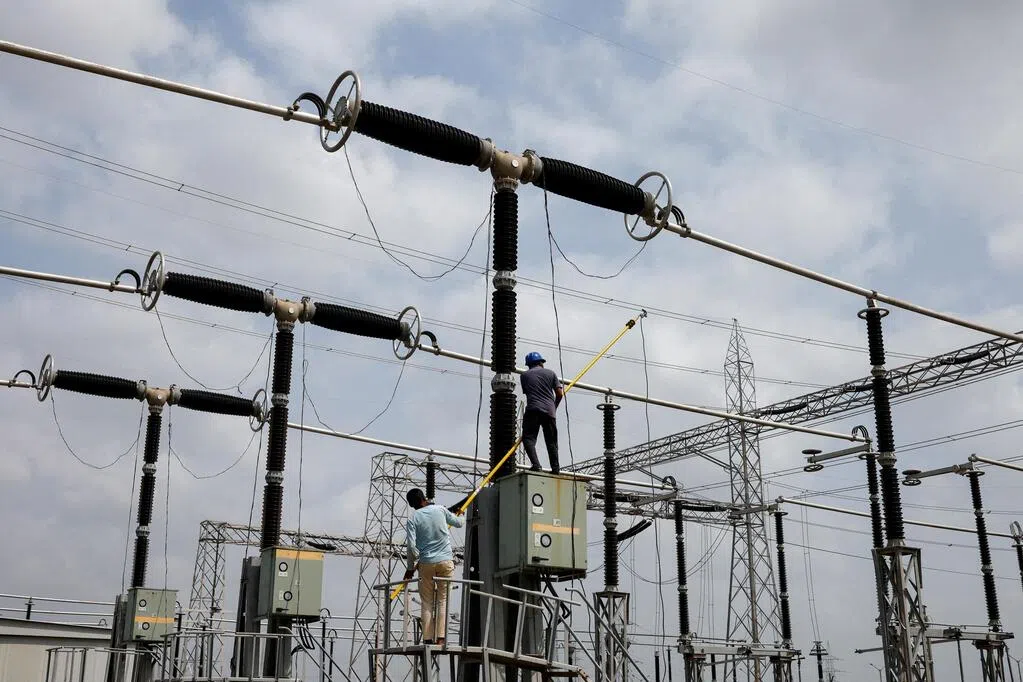Despite repeated signals from US President Trump to North Korean leader Kim Jong-un that he wanted to meet, Pyongyang responded with a cruise missile launch on the eve of Trump's visit to South Korea. Analysts believe this move by North Korea was intended to demonstrate its presence on the Korean Peninsula and simultaneously preserve space for future dialogue with the US.
South Korea's Joint Chiefs of Staff reported on Wednesday (October 29) that the South Korean military detected signs of a North Korean cruise missile launch in the northern West Sea around 3 pm the previous day. The Korean Central News Agency (KCNA) reported on the same day that "North Korea conducted a test launch of a modified strategic cruise missile for ship use in the West Sea on the 28th. The missile flew for approximately 2 hours and 10 minutes and accurately hit its target."
Observers pointed out that the most noteworthy aspect of this launch was its timing. Approximately 45 minutes after the missile launch, President Trump and Japanese Prime Minister Sanae Takaichi boarded the USS George Washington, a nuclear-powered aircraft carrier at the US Marine Corps base in Yokosuka, Kanagawa Prefecture. Analysts generally believe that this timing difference was not a coincidence but rather a deliberate political signal from Pyongyang.
Yang Moo-jin, a visiting professor at the University of North Korean Studies, pointed out: "North Korea may have deliberately launched the missile to coincide with the US-Japan summit, in order to convey the strategic message that 'we are also on the Korean Peninsula.' Pyongyang is closely monitoring regional diplomatic developments and is using this missile action to express its unease and dissatisfaction with the strengthening of the US-Japan alliance."
It is noteworthy that North Korean leader Kim Jong-un did not appear at the test site on Tuesday (28th), and the missile launched was not a ballistic missile.
Further Reading


Experts interpret this as reflecting Pyongyang's intention to "control the intensity of provocations" and avoid excessive tension during Trump's visit to South Korea. While cruise missiles possess offensive capabilities, they are not subject to UN Security Council sanctions and are considered a form of "controlled provocation."
Lim Eul-chul, a professor at the Institute for Far Eastern Studies at Kyungnam University, analyzed, "Kim Jong-un seems to be deliberately adjusting the intensity to maintain personal rapport and a minimum level of trust with Trump. Pyongyang is trying to maintain a restoreable diplomatic channel without angering Washington."
At the South Korea-US summit on Wednesday, both Lee Jae-myung and Trump acknowledged that a North Korea-US summit was "virtually impossible."
Trump stated, "I know Kim Jong-un very well; it's just that the timing wasn't right." Lee Jae-myung responded, "Although Kim Jong-un hasn't fully accepted President Trump's sincerity, his invitation to talks itself brought a warmer atmosphere of peace to the Korean Peninsula."
On his flight from Japan to South Korea on Wednesday, Trump reiterated on his plane that he would "meet with North Korea in the near future," indicating that his willingness to engage in dialogue remains. Observers believe that if Pyongyang were willing to respond, it would have taken action during Trump's visit to South Korea, and this cruise missile test is seen as a "symbolic response"—neither a provocation nor a rejection.
Dongguk University professor Kim Yong-hyun pointed out: "As long as the United States does not recognize North Korea as a nuclear-armed state, Pyongyang will consider the time not yet ripe. However, Kim Jong-un's failure to personally observe the test indicates that he is still leaving room for future contact."



